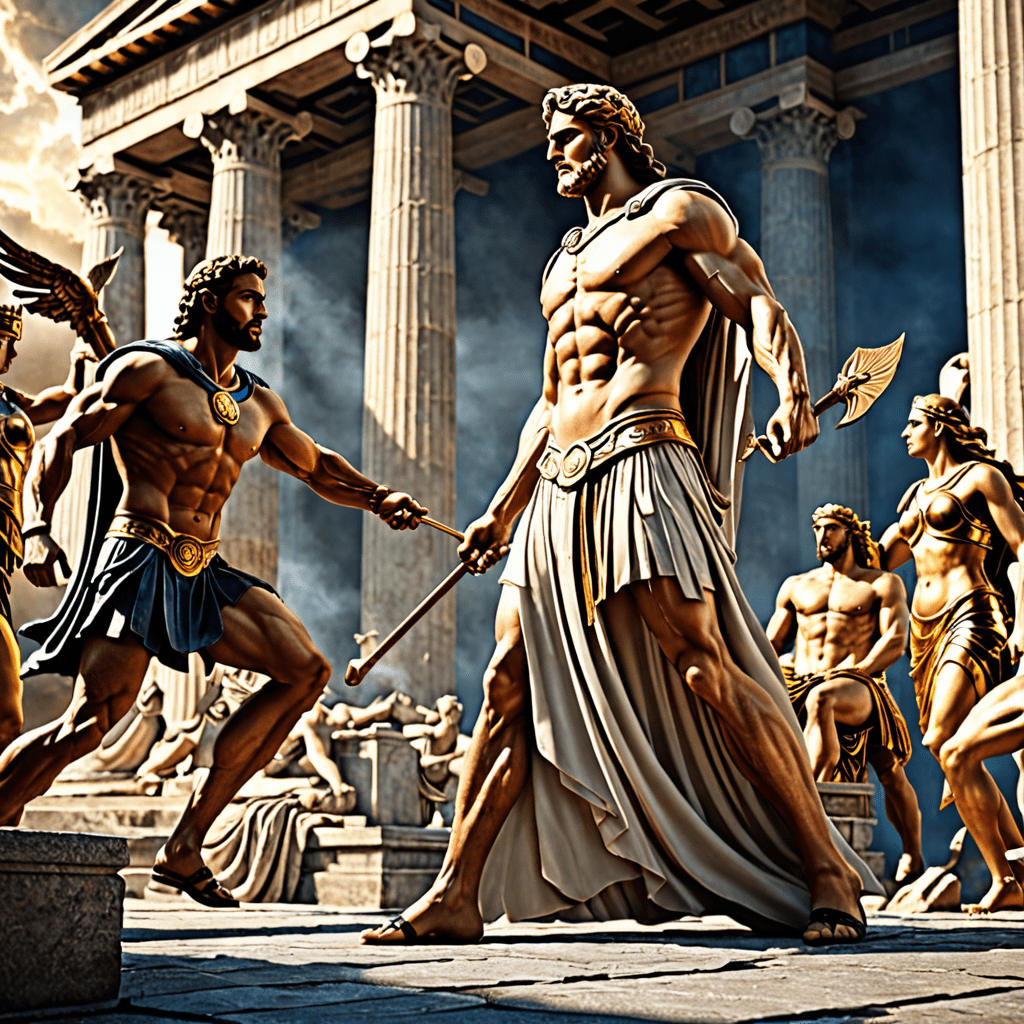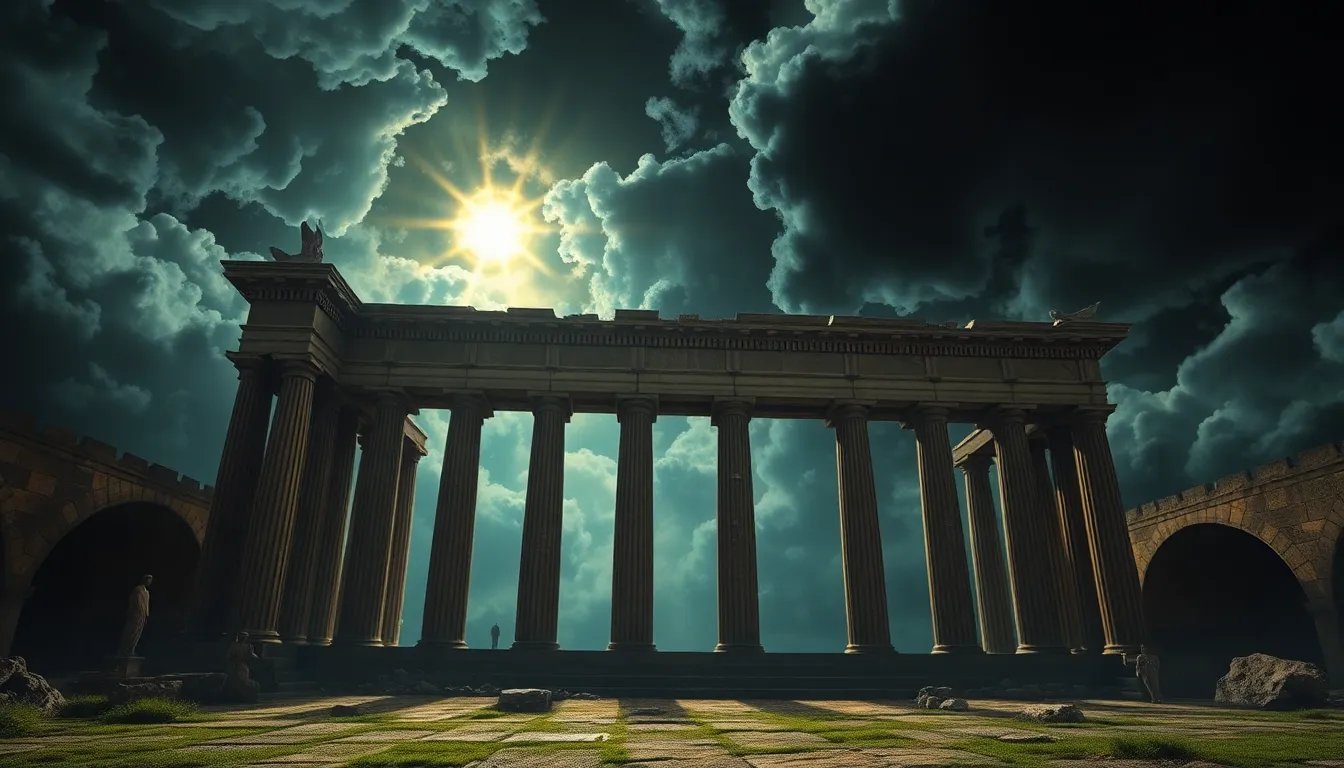The Journey of the Cosmic Traveler: Myths of Interstellar Adventures
I. Introduction to Cosmic Travel Myths
Cosmic travel, often depicted as a journey beyond our earthly bounds into the vast expanse of the universe, holds a significant place in mythology across cultures. The significance of these myths lies in their ability to encapsulate human curiosity, aspiration, and the quest for understanding the cosmos.
Various cultures have their interpretations of interstellar adventures, often illustrated through the tales of heroes embarking on cosmic quests. This exploration of myths serves to highlight the universal themes of discovery and the relationship between humanity and the cosmos.
II. The Origins of Cosmic Traveler Myths
The roots of cosmic traveler myths can be traced back to ancient civilizations, where interstellar travel was often a metaphorical representation of spiritual journeys or quests for knowledge. These myths were shaped by the historical context of the societies that created them.
- A. Historical context of interstellar travel in ancient civilizations: Ancient peoples often looked to the stars for navigation, inspiration, and understanding of their place in the universe.
- B. Mythological figures associated with cosmic journeys: Figures like Izanagi and Izanami in Japanese mythology or the Sumerian god Enki provide insight into how these journeys were perceived.
- C. The role of astronomy in shaping these myths: Early astronomers observed celestial patterns, which influenced the narratives and the characters associated with them.
III. Prominent Myths of Cosmic Travelers
Throughout history, several prominent myths have highlighted the journeys of cosmic travelers, each reflecting the unique cultural perspectives of their time.
- A. The Epic of Gilgamesh: A Journey Beyond the Stars: This ancient Mesopotamian epic showcases Gilgamesh’s quest for immortality, where he encounters divine beings and traverses realms beyond the earthly plane.
- B. The Voyage of Odysseus: Cosmic Elements in Greek Mythology: Odysseus’s journey home is fraught with encounters with gods and mythical creatures, symbolizing the unpredictability of cosmic travel.
- C. The Hindu Epic Mahabharata: Interstellar Battles and Divine Intervention: The Mahabharata features celestial weapons and divine beings, intertwining battles on Earth with cosmic implications.
IV. Cosmic Travelers in Indigenous Cultures
Indigenous cultures around the world have rich traditions of cosmic travel myths that reflect their understanding of the universe and their spiritual beliefs.
- A. Native American star myths and celestial navigation: Many Native American tribes have creation stories that involve the stars, using celestial bodies for navigation and storytelling.
- B. Aboriginal Australian stories of creation involving the stars: The Dreamtime stories often incorporate the stars as ancestors and reflect the connection between the land and the cosmos.
- C. African mythologies and the concept of the sky as a journey: African myths often depict the sky as a realm to be explored, with journeys that connect the earthbound experience to the celestial.
V. The Influence of Cosmic Travel Myths on Literature and Pop Culture
The themes and narratives from cosmic travel myths have profoundly influenced literature and popular culture, inspiring generations of writers and filmmakers.
- A. Early sci-fi literature inspired by mythological tales: Works like H.G. Wells’ “The War of the Worlds” and Jules Verne’s “From the Earth to the Moon” draw upon mythological elements of exploration and adventure.
- B. The representation of cosmic travelers in modern films and television: Movies such as “Interstellar” and series like “Star Trek” continue to explore the complexities of cosmic journeys.
- C. The impact of these myths on contemporary science fiction: Modern sci-fi often revisits these ancient themes, reinterpreting them for new audiences and contexts.
VI. Symbolism and Themes in Cosmic Traveler Myths
The myths of cosmic travelers are rich in symbolism and explore a variety of themes that resonate with the human experience.
- A. The quest for knowledge and exploration: Many myths illustrate the innate human desire to seek knowledge beyond our immediate surroundings.
- B. The duality of adventure and danger in the cosmos: Cosmic journeys often present a juxtaposition between the thrill of discovery and the risks involved.
- C. The notion of destiny and fate in cosmic journeys: These myths frequently explore themes of predestination versus free will, raising questions about the role of the individual in the vast universe.
VII. Scientific Perspectives on Cosmic Travel
The intersection of mythology and modern science offers a fascinating lens through which to view cosmic travel.
- A. The intersection of mythology and modern astrophysics: Concepts such as wormholes and warp drives echo ancient mythological journeys through space.
- B. Feasibility of interstellar travel: From myth to reality: Current advancements in space technology are pushing the boundaries of what was once considered purely mythical.
- C. The role of technology in realizing cosmic adventures: Innovations in aerospace engineering may soon make interstellar travel a reality.
VIII. The Role of Cosmic Travel Myths in Human Understanding
Myths of cosmic travel serve as reflections of our deepest existential questions and the human condition.
- A. How myths reflect human curiosity and existential questions: These narratives represent our quest to understand our place in the universe and our relationship with the cosmos.
- B. The psychological impact of cosmic travel narratives: They provide frameworks for understanding fear, wonder, and the unknown.
- C. Myths as a means of coping with the unknown: They offer narratives that help make sense of uncertainty and the mysteries of existence.
IX. The Evolution of Cosmic Traveler Myths in a Modern Context
As technology and our understanding of the universe evolve, so too do the myths that surround cosmic travel.
- A. The resurgence of interest in space exploration and its cultural implications: The new space race and missions to Mars revive ancient themes of exploration.
- B. The adaptation of ancient myths for modern audiences: Contemporary retellings of cosmic myths resonate with current technological and philosophical contexts.
- C. Future myths: What will they look like? As we continue to explore space, new myths will emerge, reflecting our experiences and aspirations as cosmic travelers.
In conclusion, the journey of the cosmic traveler is a rich tapestry woven from the threads of ancient myths, cultural narratives, and modern scientific exploration. These stories not only reflect our enduring fascination with the cosmos but also serve as a mirror to our aspirations, fears, and the profound questions that accompany the human experience. As we look to the stars, we are reminded of the myths that have guided us through the ages, shaping our understanding of the universe and our place within it.



